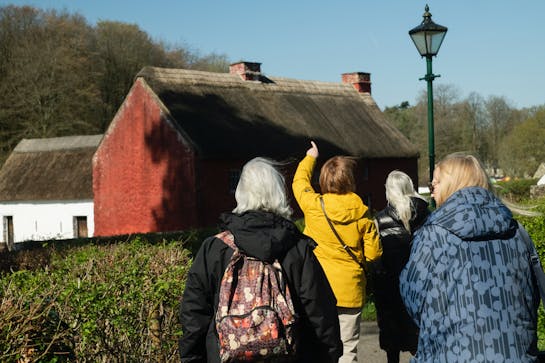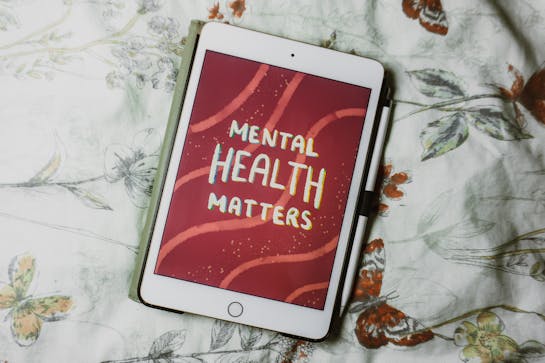
Mental health support and provision in the Together Network
Our Member organisations across the Together Network actively support those struggling with their mental health or living with mental illness in their region and provide training for community organisations, churches and individuals who come alongside those who are mentally unwell so they can be best equipped to help those in need all year round.
Together Network partners have realized the need for delivering effective mental health training for those working on the frontline of ministry. Transforming Notts Together have a Mental Health and Wellbeing subgroup as part of their CAN network, offer training for mental health first aiders in churches within Nottinghamshire and deliver workshops to support churches in establishing a ministry of wellbeing and effectively supporting their congregation and community with their mental health. This work was initially funded by the Benefact Trust. The subgroup helpfully provides peer support as well as being a space to share best practice, resources and signposting recommendations for those living with mental illness. The workshops offer a facilitated discussion around looking after your wellbeing while supporting others, forming partnerships between churches and charities and identifying barriers in this work within the Church.

Transforming Lives Together in Chester Diocese, alongside investing lots into promoting the Place of Welcome network, offer free mental health first aid training courses onsite and online funded by grants from the Benefact Trust and Awards for All. These are available to clergy, staff and volunteers who work on church based social action projects across the diocese, ensuring they are confident in supporting others with their mental health and able to identify those they interact with who may be struggling.
Greater Together Manchester offer a bespoke training Level 1 programme on trauma awareness and a further Level 2 course on becoming a trauma informed community practitioner. These are delivered by a qualified Mental Health Development Practitioner, who is also an art psychotherapist and funded by NHS Greater Manchester, GMCA Violence Reduction Unit and other organisations invested in social justice. Some of those from our network recently attended both of these courses online.

In light of the current struggles young people face with their mental health and the long waiting lists and high thresholds to access professional support from mental health services, Transforming Communities Together Warwick provide a course called the Strong Mental Health Resilience course to support those ‘in the gap’ who are finding it hard to cope with challenges in their lives. Sessions are run by trained volunteers, aimed at those in Year 7 and take place in small discussion groups at two local secondary schools currently. They provide a safe space for young people to talk openly about their feelings and the challenges they face at home and at school, as well as receive encouragement and support from the group leaders and their peers. This helps resource schools in their pastoral care for students.

Our Together Network Members are committed to providing spaces for people to come to as they are and receive support and a listening ear if required. They also prioritise tackling isolation and loneliness (which can be contributing factors to poor mental health) and work to reduce stigma, which still persists around mental illness. Together Leicester have partnered with Renew Wellbeing, a Christian mental health charity, to develop safe spaces in churches for people to come to.
Imagine Norfolk Together have a particular focus on ensuring dementia-friendly spaces are provided in churches and community organisations. Up in the North East, Transforming Communities Together Tyne to Tweed, after a listening exercise within their communities, recognised the increasing number of people struggling with their mental health during and after the pandemic, and in response launched a Places of Wellbeing initiative. This continues the Places of Welcome scheme but in addition promotes the creation of other spaces online and onsite where everyone can be welcome, be valued and hear, and participate fully should they wish to. Activities include friendship groups, community gardens, walking groups and befriending services. They are all embedded within strong partnership working between community agencies, churches and volunteers with an intentional focus on transforming lives through enabling all who engage to flourish and be treated with dignity and worth.

In Lichfield, Transforming Communities Together’s work focuses on the following areas: promoting wellbeing and supporting those struggling with their mental health, tackling isolation and building community, expanding dementia-friendly churches and enabling all to equitably access community life and thrive as individuals. They have a mental health development worker, funded by the Benefact Trust, there to support and empower churches in caring for people’s wellbeing and mental health and work closely with the Diocesan Enabling Church Advisor as well as partner organisations and charities to run training and events on mental health. They have a page dedicated to resources and reducing stigma, including videos and reflections on self-care and mental health awareness.
Partnership working is key to effective community mental health support. Transformation Cornwall invest effort into strengthening networks of Cornish mental health services and help local faith communities work together to continue to respond well to community need. They are members of the Faith and Mental Health Network which seeks to offer a safe space for people to explore concerns, share information and resources, relate faith to mental health and advise those supporting others in their communities. They work hard to highlight the work of both mental health services and the faith community around mental health as well as hosting a page on their website with many resources and links to charities, local and national, which are involved in tackling stigma, supporting those with mental ill health or carrying out early intervention and suicide prevention work.

Of course, mental ill health and mental illness can often be exacerbated by other factors such as homelessness, discrimination, poverty and the cost of living crisis (remember the web of poverty), so partners continue to holistically respond to those struggling locally with their mental health and support them while also working hard to address social injustice and promote community cohesion.
Why not get your local church to sign up to the Faith Action Friendly Places Pledge and commit to be a Place of Welcome and provide a space for everyone to feel safe to connect, belong and contribute? If you’re coming alongside people struggling with their mental health or heavily involved on the frontline of social action, why not take a look at the recent Growing Good webinar by Corin Pilling resilience for leaders and volunteers of church-based social action projects ?

This week is National Self Care Week. Remember to take care of yourselves too while caring for others as one can't pour from an empty cup. Go to Self Care Week - Self Care for more information and advice.
Need mental health support or know someone who does?
Here is a starter list of places you could reach out to.
Samaritans: Contact Us | Samaritans
CALM: Homepage | Campaign Against Living Miserably (CALM) (thecalmzone.net)
Shout: Shout - UK's 24/7 Crisis Text Service for Mental Health Support | Shout 85258 (giveusashout.org)
Sane: Who we are - SANE
Mind: Home - Mind
